
[ Return ] [ Entire Thread ] [ First 100 posts ] [ Last 50 posts ]



| >> | No. 5456
5456
This was really good. |
| >> | No. 7842
7842
>>7841 |
| >> | No. 7843
7843
Service_Model_by_Adrian_Tchaikovsky.png 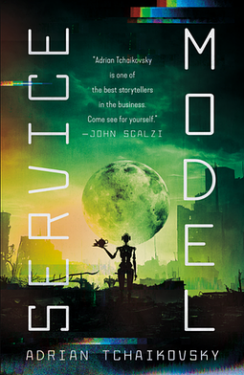  
Tchaikovsky has a gift for writing from the perspective of other forms of intelligence. In this case a service robot in a world after the apocalypse. The ending is a little trite but it does a great job of taking you on the journey of a robot obsessed with task lists, serving humans and who may or may not be a murderer but is convinced that statistically a small risk of death is fine. |
| >> | No. 7844
7844
marquis-de-sade-4-2227666222.jpg   
I read that Marquis Sade book, 120 Nights of Sodom. It was shit. Like, absolutely shit. It was only about half way through that I remembered the book was barely finished and what I'd been reading was mostly authors notes. Still, the first two thirds of the book are about nothing but farting, smelling and eating feces. It's a fucking joke. To think the cunt of an author sent this to the Emporor of France? Napolean was right to throw thim in a stockade for fuck sake. |
| >> | No. 7845
7845
>>7844 |
| >> | No. 7846
7846
>>7844 |
| >> | No. 7849
7849
I've just finished Qualityland, which I think both of you lads have already read. It was rather good. |
| >> | No. 7850
7850
>>6354 |
| >> | No. 7851
7851
>>7850 |
| >> | No. 7852
7852
s-l1200.jpg 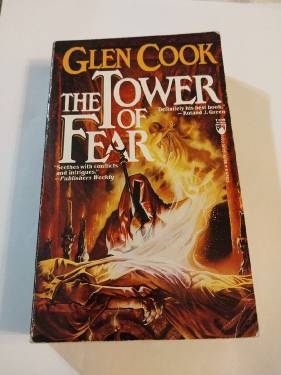  
I thought I'd give one of Glen Cook's standalone novels a try. |
| >> | No. 7853
7853
comp-1725361140.jpg   
Tony Blair's new book was surprisingly good. It's ostensibly a book for leadership but mostly contains him opining on the state of the world and anecdotes on his long career both as PM but also in his interactions with figures like Aung San Suu Kyi and various people who have to remain anonymous because they're still in power. |
| >> | No. 7857
7857
dragon.jpg 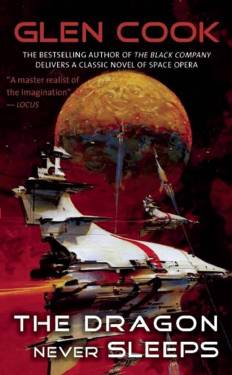  
The Dragon Never Sleeps is a standalone space opera by Glen Cook. I've read that this was originally intended to be a series but there were issues with the publisher, so the story was crammed into one book; this would explain why the writing wasn't up to his usual standards, which felt rushed, convoluted and the characters have very little to make them distinguishable from one another. |
| >> | No. 7858
7858
gs trading game.jpg 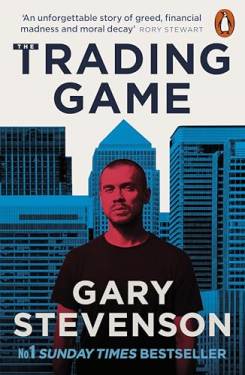  
>>7784 |
| >> | No. 7859
7859
Someone should write a book about the ethics of statistics. I'd read that - preferably fiction. |
| >> | No. 7860
7860
>>7859 |
| >> | No. 7861
7861
I read a book recently |
| >> | No. 7862
7862
>>7861 |
| >> | No. 7863
7863
>>7862 |
| >> | No. 7864
7864
piranesi.jpg 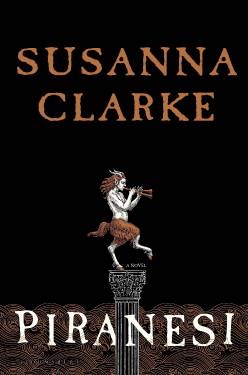  
This was a really satisfying read is the best way I can put it. The narration through a series of notes captures the internal monologue of a solitary man scurrying about in a seemingly enormous and decorated mansion surrounded by ocean. |
| >> | No. 7865
7865
>>7864 |
| >> | No. 7866
7866
ss.jpg 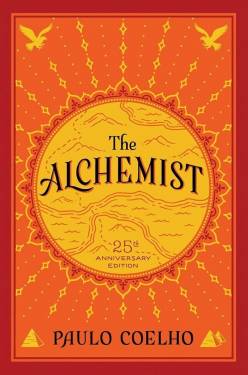  
This was crap. |
| >> | No. 7867
7867
31798569.png 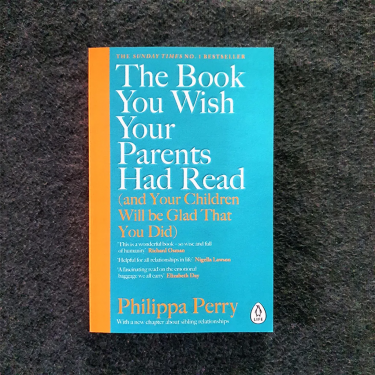  
I enjoy Philippa Perry's agony aunt column in the Guardian so I thought I'd try this. |
| >> | No. 7868
7868
81JFM4H1-fL.jpg 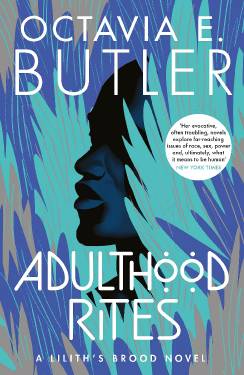  
I preferred this to Dawn but it fell into a similar trap as the final third, which was mostly building towards a sequel, wasn't as good as the rest of the book. |
| >> | No. 7869
7869
9781538753736-1.jpg 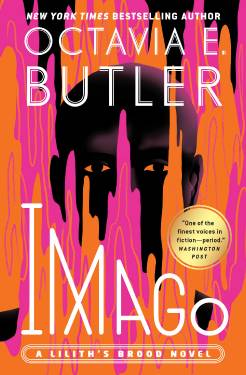  
This was the least gripping book in the trilogy but it also felt the most rounded. |
| >> | No. 7870
7870
I've failed to get into Octavia Butler. Possibly a case of what was new and inventive at the time no longer being so, so I find them a bit uninspired. Not a fair way to judge them but I can't change my context. |
| >> | No. 7871
7871
>>7870 |
| >> | No. 7873
7873
d.jpg 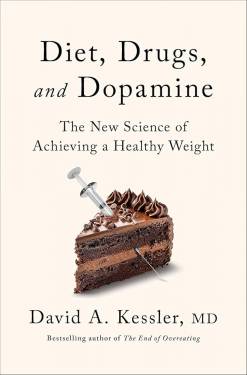  
Diet, Drugs and Dopamine is a pretty comprehensive account of the modern science of obesity. In a way it feels like 3 books: |
| >> | No. 7874
7874
>>7873 |
| >> | No. 7875
7875
>>7874 |
| >> | No. 7876
7876
9781473231177-original.jpg 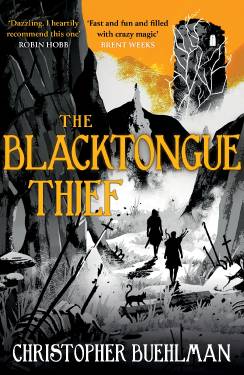  
This was a fun bit of light reading. |
| >> | No. 7877
7877
>>7876 |
| >> | No. 7878
7878
corps commander.jpg   
Corps Commander is a pretty good read. It's certainly a very easy one because it's fairly light on detail, but obviously that's a problem as well. Brian Horrocks, who commanded XXX Corps in North West Europe, doesn't even explain what the injuries were that would occasionally render him feverishly unwell and all but bed ridden. Nevertheless, it's a solid, brief history of what the 21st Army Group got up to (many parts not directly related to XXX Corps are written by Eversley Belfield), and a good insight into the personality of Brian Horrocks himself, even when it doesn't mean to be. The primary caveat being that he is writing about himself and his forces, and as such he shouldn't be taken as the final word on any of it, no matter how gregarious and level-headed "Jorrocks", as Montgomery called him, appears. |
| >> | No. 7879
7879
dw.jpg 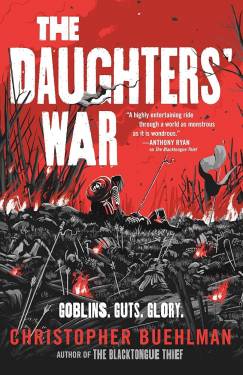  
I didn't enjoy this as much as The Blacktongue Thief. |
| >> | No. 7880
7880
Screenshot From 2025-07-28 23-08-19.png 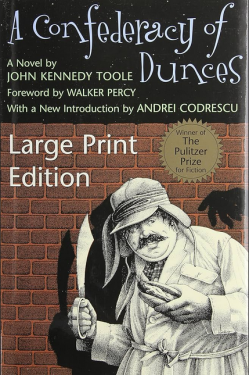  
Widely hailed as one of the funniest novels ever written, A Confederacy of Dunces is indeed quite funny. But in my experience, books are never all that funny, compared to other media. And many other funny books I've read had much more of a story than this did. The author, John Kennedy Toole, committed suicide in 1969 after failing to get it published, and his mother took over and successfully got it published in 1980 as the ultimate tribute to her son's memory. I must say, the grammar is terrible and there are multiple spelling mistakes, plus the aforementioned extremely threadbare plot, and the fact that every character is so revoltingly unsympathetic, are all downsides that allow me to understand why a lot of publishers turned this down. |
| >> | No. 7881
7881
>>7880 |
| >> | No. 7882
7882
It's seven or eight years since I read it, but didn't he have a wank while thinking about his dog? All I can really remember other than that is him using his soiled sheets as a banner and calling other people degenerates. |
| >> | No. 7883
7883
>>7882 |
| >> | No. 7884
7884
81RiF1L4FcL.jpg 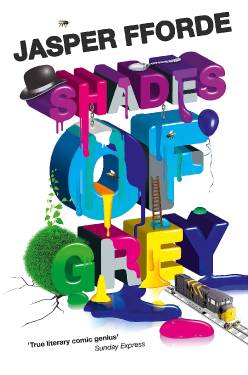  
This was alright, I guess. |
| >> | No. 7885
7885
IM.jpg 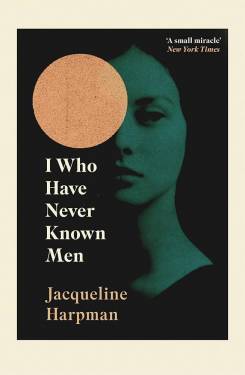  
This was interesting. |
| >> | No. 7887
7887
Bee Speaker.jpg   
The new book in the Dogs of War series isn't great. I feels like it lacked the ideas of the earlier books that made them interesting, especially Bear Head where you can tell a lot of it came to Tchaikovsky in a dream between using sweets to bribe bears, renting your brain out and giant babies. Instead it feels like a generic post-apocalyptic sci-fi without much to go off other than a cool scene about what happened in the bunker, sentience in a cold-blooding animal and probably something about gods and reverence. |
| >> | No. 7888
7888
Untitled.jpg   
>>7887 |
| >> | No. 7889
7889
9788446052654.jpg   
I finished reading one of the most culturally significant novels of the 20th century about an hour ago. George Orwell's Nineteen-Eighty-Four, which I love to smugly point out is all spelt in letters in the title but which I will nevertheless call 1984 from now on, is so famous that there's actually very little to say about it that anyone doesn't know. Allegedly, it is the book that most people claim to have read without actually having read it, according to some survey that was done a few years ago. But I have now actually read it! |
| >> | No. 7890
7890
>>7889 |
| >> | No. 7891
7891
>>7890 |
| >> | No. 7892
7892
>>7891 |
| >> | No. 7893
7893
>>7891 |
| >> | No. 7894
7894
>>7891 |
| >> | No. 7895
7895
>>7894 |
| >> | No. 7896
7896
Well, I have read it now, and I dareay |
| >> | No. 7897
7897
>>7895 |
| >> | No. 7898
7898
199353348.jpg 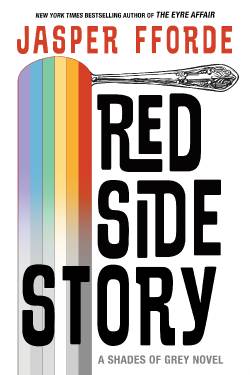  
This was enjoyable in parts but it felt like there were quite a few flaws to it. This is possibly because it was published 15 years after Shades of Grey, as it did feel a bit disjointed. |
[ Return ] [ Entire Thread ] [ First 100 posts ] [ Last 50 posts ]

|
Delete Post [] Password |